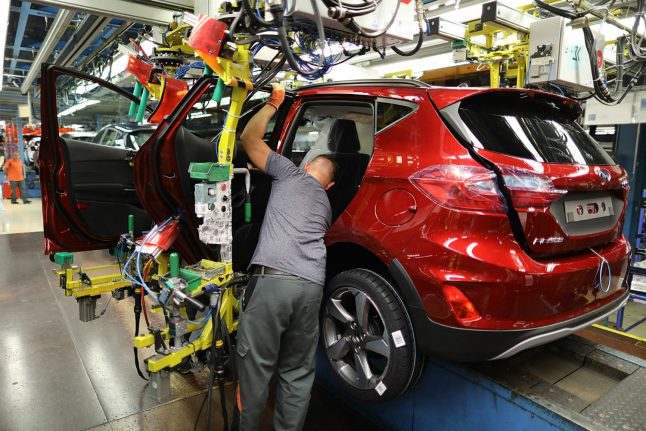Ford on Friday said it planned to cut “more than 5,000” jobs in Germany as part of a major restructuring to boost profitability at the US car giant's European operations.
The group aims to carry out the jobs cull through voluntary redundancies and early retirement, a spokeswoman told AFP.
“This announcement is part of the Ford restructuring announced in January
in Europe with the goal of returning to profitable business in Europe as soon as possible,” she said.
“The aim is to cut more than 5,000 jobs in the most socially responsible way possible,” the spokeswoman added, without detailing how the cuts would be divided among Ford's operations in Cologne, Aachen and Saarlouis.
The announcement, which was shared with Ford Germany employees earlier on
Friday, comes after the carmaker warned in January that “thousands” of jobs would be cut as part of a revamp of its loss-making European division.
Ford employs some 53,000 people across Europe, around 24,000 of them in Germany.
The overhaul comes at a time of widespread upheaval for global automakers as the industry pivots to the greener, smarter cars of the future and polluting diesel cars fall out of favour.
The industry is also grappling with the knock-on effects of US-lade trade tensions, Brexit uncertainty, and economic slowdowns in the key European and Chinese markets.
Ford, the second-biggest US automaker, plans to respond to the challenges with a global reorganisation, including a huge cost-cutting drive and partnership deals with rival carmakers.
The group, which booked a 2018 net profit of $3.7 billion, already announced last year that it would halt production of almost all sedans and small cars in the United States to save $11 billion.
In the United Kingdom, Ford plans to axe 1,150 jobs, according to Britain's Unite union.
In France, the group plans to close a plant making gear boxes near Bordeaux, costing 800 jobs and drawing the ire of the French government.
In Russia, Ford said it would launch a strategic review of its joint venture Ford Sollers.
Like other carmakers who have teamed up to reduce costs in an increasingly competitive industry, Ford earlier this year announced an alliance with German giant Volkswagen to jointly develop commercial vans and pickups from 2022.
The two companies are also in talks about potentially cooperating on electric and self-driving cars, the latest example of rivals joining forces to save on the massive research and development costs needed for the switch to future technologies.



 Please whitelist us to continue reading.
Please whitelist us to continue reading.
Member comments